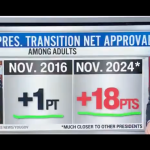Filip Radwanski/SOPA Images/LightRocket via Getty Images
- Twitter removed around 130 fake accounts based in Iran that tried to “disrupt the public conversation” during Tuesday’s US presidential debate, the company announced Wednesday.
- Twitter said the FBI alerted it to the accounts, which ultimately “had very low engagement and did not make an impact on the public conversation.”
- Twitter is still investigating the network and plans to release more details at a later date.
- Intelligence officials have warned that Iran is seeking to spread online disinformation around the US elections, though most say Russia poses a far larger threat.
- Visit Business Insider’s homepage for more stories.
Twitter said in a tweet Wednesday that it had taken action against approximately 130 fake accounts, likely based in Iran, that attempted to spread disinformation during the US presidential debate on Tuesday.
“Based on intel provided by the @FBI, last night we removed approximately 130 accounts that appeared to originate in Iran. They were attempting to disrupt the public conversation during the first 2020 US Presidential Debate,” Twitter’s safety team said.
In a small sample disclosed by Twitter on Wednesday, the accounts posted content both supporting and opposing President Donald Trump and Democratic nominee Joe Biden, as well as questioning the political affiliation of debate moderator Chris Wallace.
—Twitter Safety (@TwitterSafety) October 1, 2020
Twitter said it identified and removed the accounts “quickly” and that they ultimately “had very low engagement and did not make an impact on the public conversation.”
The company has already shared details with other companies to alert them to potential cross-platform threats and said it will release additional details about the accounts and content once its own internal investigation is complete.
Iran is one of several countries the US intelligence community is monitoring for potential foreign election meddling through social media and other online disinformation campaigns.
National Counterintelligence and Security Center Director William Evanina issued a statement in August saying that, by his office’s assessment, Iran “seeks to undermine US democratic institutions, President Trump, and to divide the country in advance of the 2020 elections.”
“Tehran’s motivation to conduct such activities is, in part, driven by a perception that President Trump’s reelection would result in a continuation of US pressure on Iran in an effort to foment regime change,” he said.
Microsoft also released a report in early September finding that Iran had stepped up its hacking activities and had targeted Trump campaign officials.
But even as Trump, along with political appointees and Republicans loyal to him, have sought to shift the focus around election meddling to China and Iran, most US intelligence officials and experts believe Russia is a substantially larger threat.
Earlier this month, Brian Murphy, a former senior official at the Department of Homeland Security, filed an explosive whistleblower complaint claiming that he was told to suppress intelligence about Russian election interference and instead look into China and Iran.
Powered by WPeMatico






